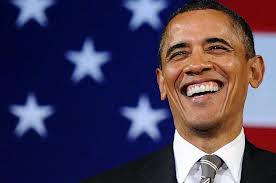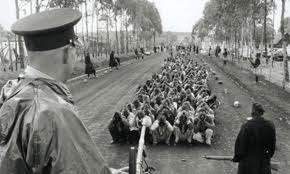- The Orange Order is a supremacist organisation. The Parades Commission ruled that yes, despite last year’s appalling behaviour, band members could parade past St Patrick’s church to the accompaniment of a single drum-beat. This ruling was ignored and and the defiance of the ruling justified by unionist politicians: “Who could object to the playing of a religious hymn?”. Well, clearly the Parades Commission objected to it, hence their ruling. And if you watch and listen to the band on video, you realise that the tune may have been ‘What A Friend We Have In Jesus’ but the performance had a level of swagger and thump-thump-thump not normally related to hymn-playing. Parades Commission ruling? What Parades Commission ruling? We decide what we play, when we play it, where and how. If that’s not a supremacist attitude, look forward to my my granny spear-heading the Barcelona forward line next season.
- Gerry Kelly (and Alban Magennis and Carál Ní Chuilín) should stop doing the PSNI’s work for them. Not only do you not get paid for it, but as Friday showed, you really enhance your chances of being hospitalized or even killed. The job for which the police are handsomely paid is to see that the law is upheld and that those who break the law are punished. That’s not the job of Gerry or Cáral or Alban. Yet they’ve gone out of their way to help the PSNI in maintaining public order. Result? Carál Ní Chuilín ends up in hospital, Gerry Kelly’s life is put at risk by a police vehicle. That doesn’t sound like much of a reward for their efforts. Think of it the other way round: supposing Gerry had driven his car for fifty yards with a policeman clinging on for dear life? The courts would beckon, along with a hefty fine or even imprisonment.
- The PSNI must show more consistency, and quickly. Many people thought the police acted unwisely in their response to the flag protestors. They didn’t make arrests; they played a softly-softly game and in the end, it seemed Matt Baggott was right - the protests fizzled out and those rioting were later arrested and charged. But this approach demands consistency. You can’t just treat flag protestors one way and anti-Orange Order demonstrators another. But last Friday, that’s just what they did. Imagine the brou-ha-ha had, for example, if Jim Allister been carried on the bonnet of a police landrover during a flags protest, or Arlene Foster injured in a melee? Consistency, guys - and quickly as possible.
- The Friday-night affair and flag-protestors comparison can be carried too far. There’s one big difference. The flag protestors, or a considerable number of them, mounted vicious and sustained attacks on the police. Nothing comparable happened last Friday night in North Belfast. It’s never a good idea to mistake chalk for cheese.
- Last Friday’s events speak to our distant past and our near- future. After Friday, it’s hard not to feel anxious about the coming marching season. But no one should feel surprised. As Andy Boyd’s excellent book Holy War in Belfast details, civil disorder has been the hall-mark of Orange parades since the beginning of the nineteenth century. In fact, at two separate points in the nineteenth century, things got so bad the British government was forced to outlaw Orange Order marches for a period of years. Were I a unionist, I’d be truly embarrassed to think that Orange strutting and provocation had anything to do with my culture.
“But what is the answer?” I hear you cry. “What can we do?” The answer to this centuries-old problem is simple: end all parades now. “Are you kidding?” you say. “All hell would break loose! Besides, that’d be taking away from the unionist culture”. Not necessarily - but OK then, let’s compromise. Like the flags issue, let’s go for continuation that is limited. Let’s allow Orange marches, providing they are conducted outside an Orange lodge and the marching route is a tight circle around the aforesaid lodge. Like the one they did outside St Patrick’s last year.
Yes’ it’d be a concession to a bigoted organisation but sometimes you have to reverse a little to make progress. If the Orange Order must continue in existence, let its celebrations stay local and its marching pattern be in a circle that goes nowhere. It’d also offer a nice metaphor for the place of the Order in twenty-first- century Ireland.
























